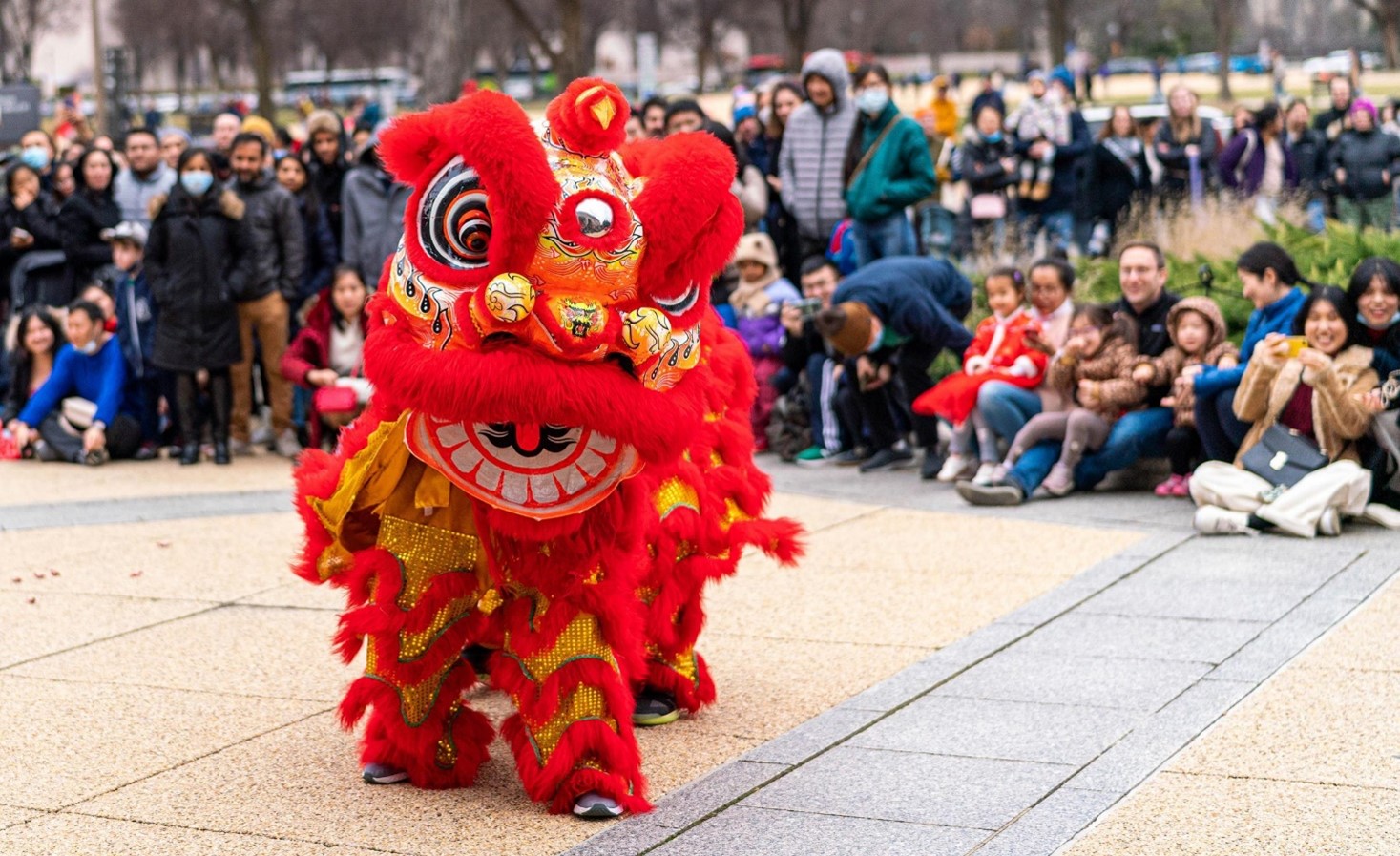National Museum of Asian Art Announces Its 2024 Lunar New Year Family Festival

A crowd watching a lion dancer perform outside the museum during the 2023 Lunar New Year Festival.
Credit: National Museum of Asian Art, Smithsonian Institution.
The Smithsonian’s National Museum of Asian Art has announced its 2024 family festival commemorating Lunar New Year, a celebration of the arrival of spring and the beginning of a new year on the lunisolar calendar. The event takes place Feb. 3, 11 a.m.–4 p.m. It is free and open to the public.
This year’s Lunar New Year festival will celebrate the year of the dragon. It will consist of performances, talks, tours, hands-on activities and more. The full schedule is available online. The museum also offers many resources to learn about Lunar New Year on its website such as virtual tours of related collections, lesson plans and webinars.
The National Museum of Asian Art began its centennial year in January 2023 with a Lunar New Year festival attended by more than 6,500 people with another 700 joining a lion dance performance on the Freer Plaza.
The 2024 event is copresented by the Embassy of the People’s Republic of China, Vietnam Society and the Korean Cultural Center Washington, D.C.
About Lunar New Year
Commonly known as the Spring Festival in China, Lunar New Year is a 15-day celebration marked by many traditions. The Lunar New Year’s Eve reunion dinner is the highlight that kicks off the holiday, a feast with a spread of symbolic dishes, such as a whole fish representing abundance, that bring good luck and fortune. The 15th and final day of the holiday is the Lantern Festival, during which people have tangyuan, or sweet glutinous rice balls, and children carry lanterns around the neighborhood at night to mark the end of the celebration.
In the Chinese zodiac, 2024 is the year of the dragon. Different regions across Asia celebrate Lunar New Year in many ways and may follow a different zodiac. Many Asian Americans and Pacific Islanders do not observe the Chinese/lunar zodiac.
About the Smithsonian’s National Museum of Asian Art
The Smithsonian’s National Museum of Asian Art is committed to preserving, exhibiting, researching and interpreting art in ways that deepen our collective understanding of Asia, the United States and the world. Home to more than 46,000 objects, the museum stewards one of North America’s largest and most comprehensive collections of Asian art, with works dating from antiquity to the present from China, Japan, Korea, South Asia, Southeast Asia and the Islamic world. Its rich holdings bring the arts of Asia into direct dialogue with an important collection of 19th- and early 20th-century art from the United States, providing an essential platform for creative collaboration and cultural exchange between the U.S., Asia and the Middle East.
Beginning with a 1906 gift that paved the way for the museum’s opening in 1923, the National Museum of Asian Art is a leading resource for visitors, students and scholars in the United States and internationally. Its galleries, laboratories, archives and library are located on the National Mall in Washington, D.C., and are part of the world’s largest museum complex, which typically reports more than 27 million visits each year. The museum is free and open to the public 364 days a year (closed Dec. 25), making its exhibitions, programs, learning opportunities and digital initiatives accessible to global audiences.
# # #
SI-7-2024
